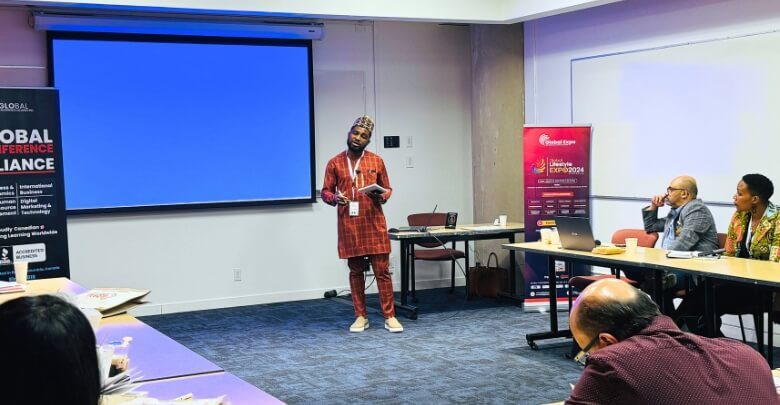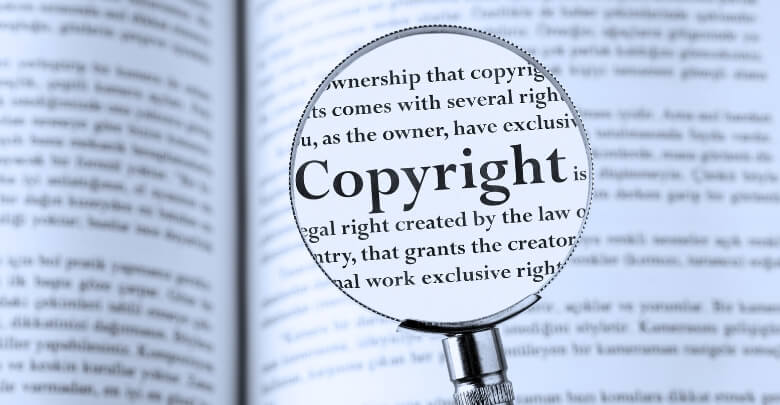Do I own the copyright of a paid conference presentation? This may seem simple, but the answer is not always straightforward. Copyright ownership can be a complex issue, especially regarding paid conferences. As a presenter, you’ll need to understand your rights and the legal implications of owning the copyright of your presentation.
The ownership of copyright for a paid conference presentation typically depends on the terms and conditions set by the conference organizer or any agreements you have entered into regarding intellectual property rights.
In this article, we will explore the different factors that can affect copyright ownership of a paid conference presentation. Whether you are a seasoned conference presenter or a first-time speaker, this article will provide valuable insights into conference presentations and copyright ownership.
Key Takeaways
- Ownership of copyright for a paid conference presentation can be complex and depends on factors such as contracts, nature of work, and laws.
- Thoroughly reviewing contractual agreements is crucial to avoid potential legal disputes and ensure an understanding of copyright ownership and limitations.
- Negotiating copyright ownership is important to ensure presenter control over their work, and consulting with an attorney can provide guidance on navigating legal complexities.
- Protecting copyright through registration, notice, and control over use is crucial to maintain ownership and ensuring fair compensation.
Understanding Copyright Ownership
Determining copyright ownership of a paid conference presentation depends on various factors, such as the terms and conditions of the contract between the presenter and the conference organizer, the nature of the work, and the applicable laws and regulations.

Copyright laws protect original works of authorship, including literary, dramatic, musical, and artistic works. Intellectual property is the legal concept that protects the rights of creators and owners of original works from unauthorized use or reproduction.
In the context of paid conference presentations, copyright ownership can depend on whether the presentation is a work made for hire. The copyright ownership belongs to the conference organizer if the presentation is a work made for hire. However, if the presentation is not a work made for hire, the copyright ownership belongs to the presenter.
This is why you should carefully review the terms and conditions of the contract before agreeing to present at a conference. The types of paid conferences can also affect copyright ownership, as some conferences may have specific policies regarding copyright ownership and the use of presentations.
Understanding these various factors is crucial in determining the copyright ownership for a paid conference presentation.
Types of Paid Conferences
The subtopic of types of paid conferences encompasses industry conferences, academic conferences, Business Management Conference, and private conferences. These three categories of conferences have different objectives, attendees, and themes.
Industry conferences are designed to bring together professionals within a particular field, academic conferences are geared towards scholars and researchers, and private conferences are usually exclusive and invite-only events.
Industry Conferences
Industry conferences provide a platform for professionals to share their knowledge and insights with a wider audience through paid presentations. While the benefits of networking and exposure are clear, questions may arise about who owns the copyright of these presentations. Here are three points to consider:
- Conference Expenses: Presenters may assume they own the copyright to their paid presentation, given that they have put in the time and effort to create it. However, note that the conference organizers have paid for the venue, advertising, and logistical support needed to make the event happen. As such, they may argue that they have some claim to the intellectual property that is being presented.
- Third-party Materials: Presenters may also include copyrighted materials from third-party sources, such as images, videos, or excerpts from published works. In these cases, the presenter may not own the copyright to these materials and may need to obtain the permission of the original copyright holder to use them in their presentation. Failure to do so could result in legal action against the presenter and the conference organizers.
- Contractual Agreements: Presenters should carefully review any contractual agreements that they sign with the conference organizers. These agreements may specify who owns the copyright to the presentation and any limitations or restrictions on how the presentation can be used or shared.
Academic Conferences
Scholars participating in academic conferences must know the nuanced regulations surrounding intellectual property ownership, particularly regarding their research presentations.
While presenting at academic conferences, scholars can showcase their research and interact with peers in their field. However, recognize that the presentation may be subject to copyright laws.
In most cases, the scholar retains ownership of their research, but the presentation materials may be subject to copyright if they contain third-party materials such as images or charts. Scholars need to obtain permission or properly credit any third-party materials used in their presentation to avoid potential legal issues.
Academic conferences also allow scholars to develop their presentation skills and network with other professionals in their field. Scholars can use these opportunities to gain feedback on their research and explore potential collaborations.
Additionally, presenting at conferences can help scholars establish themselves as experts in their field and increase their visibility within their academic community. As such, scholars need to take advantage of these networking opportunities and hone their presentation skills to maximize the benefits of participating in academic conferences.
Private Conferences
Participants in private conferences must be mindful of intellectual property considerations and potential legal implications when sharing research and ideas with other professionals in their field.
These types of conferences may not have the same academic rigor or peer review level as traditional conferences, which could lead to challenges in establishing intellectual property ownership.
Confidentiality agreements and attendee rights may also come into play, as some conferences may require attendees to sign non-disclosure agreements or limit their ability to share information with others.
To protect their intellectual property, participants should be aware of their rights and responsibilities when attending private conferences. They should carefully review any contractual agreements they are asked to sign and ensure that they understand the terms and conditions of those agreements.
Additionally, they should be aware of any potential legal implications of sharing research or ideas with others and take steps to protect their intellectual property rights. With these considerations, participants can make informed decisions about protecting their intellectual property when attending private conferences.
Contractual Agreements
When participating in paid conferences, carefully review the terms of any contractual agreements presented. This includes paying close attention to copyright ownership and negotiating terms if necessary.
It may also be wise to consult with an attorney to understand legal implications thoroughly. Individuals can protect their intellectual property and avoid potential legal disputes by taking these steps.
Reviewing the Terms of the Contract
Examining the terms of the contract is crucial in determining the ownership of the copyright for a successful conference presentation. Legal implications and potential disputes may arise if the contract is not reviewed thoroughly.
The terms of the contract clearly outline who holds the copyright and any limitations or restrictions on its use. Consider any exclusivity agreements, as they may limit the presenter’s ability to use the presentation in other contexts or grant permission for others to use it.
To emphasize the significance of contract review, consider the following table:
| Scenario | Ownership of Copyright | Implications |
| Presenter signs contract without reviewing terms | Unknown | Potential legal disputes |
| Presenter signs contract but terms are unclear | Unclear | Potential legal disputes |
| Presenter signs contract with clear copyright ownership clause | Presenter | Avoids potential legal disputes |
As shown in the table, failing to review the contract terms can result in legal disputes and uncertainty regarding copyright ownership. By thoroughly examining the contract, potential issues can be identified and resolved in advance, providing clarity and peace of mind for all parties involved.
Considering the importance of reviewing the terms of the contract, negotiating copyright ownership is the next crucial step in ensuring that the presenter has control over their work.
Negotiating Copyright Ownership
In reviewing the contract terms for a paid conference presentation, understand copyright ownership. Typically, the presenter retains the copyright to the presentation but carefully review the contract to ensure this is the case.
In some cases, the conference may require copyright ownership or impose specific restrictions on how the organized conference presentation can be used in the future. If the contract does not provide for ownership of the copyright, negotiating terms for ownership may be possible.
This can involve discussing the presentation’s intended use and any legal considerations that may arise. For example, if the presentation includes copyrighted material from others, permission may be obtained before ownership can be transferred.
Consulting with an attorney can help navigate the legal complexities of negotiating copyright ownership. A lawyer can review the contract and guide you on any potential legal issues. Additionally, a lawyer can help ensure the contract terms are fair and reasonable for all parties involved.
Consulting with an Attorney
Consulting with a legal professional can be beneficial in navigating the complexities of negotiating copyright ownership. The hiring process of an attorney can be daunting, and legal fees can be costly, but the benefits of having a legal expert on your side can outweigh the expenses.
In fact, research shows that 80% of individuals who consult with an attorney on copyright-related matters find that legal guidance helps protect their intellectual property.
Working with an attorney can help you understand the nuances of copyright law, assist in drafting and reviewing contracts, and provide guidance on navigating complex negotiations. Additionally, an attorney can help you strategize how to protect your intellectual property and ensure you receive fair compensation for your work.
Third-Party Involvement
The involvement of third-party individuals or organizations in a paid conference presentation may impact copyright ownership. When a speaker is compensated for their presentation, they provide a service to the conference organizer.
As such, any intellectual property rights that arise from the presentation may be subject to negotiation and agreement between the two parties. Here are some factors to consider when third-party involvement arises in a paid conference presentation:
- The terms of the speaker compensation agreement
- The conference organizer’s policies on intellectual property ownership
- Any contractual agreements between the speaker and the conference organizer
- The laws and regulations governing intellectual property rights in the relevant jurisdiction.
Protecting Your Copyright
In the previous subtopic, we discussed the involvement of third parties in paid conference presentations and how it could affect copyright ownership. Now, let’s focus on how you can protect your copyright as a presenter.
As the creator of the presentation, you automatically own the copyright to your work. However, take further steps to protect your intellectual property. One way to do this is by registering your copyright with the U.S. Copyright Office.
This registration creates a legal record of your ownership and provides additional legal protection in case of copyright infringement.
Additionally, you can include a copyright notice on your presentation, identifying yourself as the copyright owner and informing others that the work is protected by copyright.
However, note that the fair use doctrine allows limited use of copyrighted material without permission from the copyright owner. For instance, if someone uses a small portion of your presentation for educational purposes or criticism, it may fall under the fair use doctrine.
In such cases, it may not be considered copyright infringement. Nonetheless, it’s still crucial to protect your copyright, as it gives you complete control over how your work is used.
To help you understand the key points better, we’ve created a table below, which summarizes the steps you can take to protect your copyright and the limitations of the fair use doctrine.
Conclusion
Owning copyright of a paid conference presentation is a complex issue that requires careful consideration of contractual agreements, conference type, and third-party involvement.
Protect your intellectual property by understanding the terms of the agreement and seeking legal advice if necessary. By doing so, you can safeguard your rights and ensure that you have the freedom to use and distribute your presentation in the future.
As the saying goes, ‘An ounce of prevention is worth a pound of cure.’ Reviewing and understanding your intellectual property agreement can prevent costly legal battles and protect your creative work for years.







